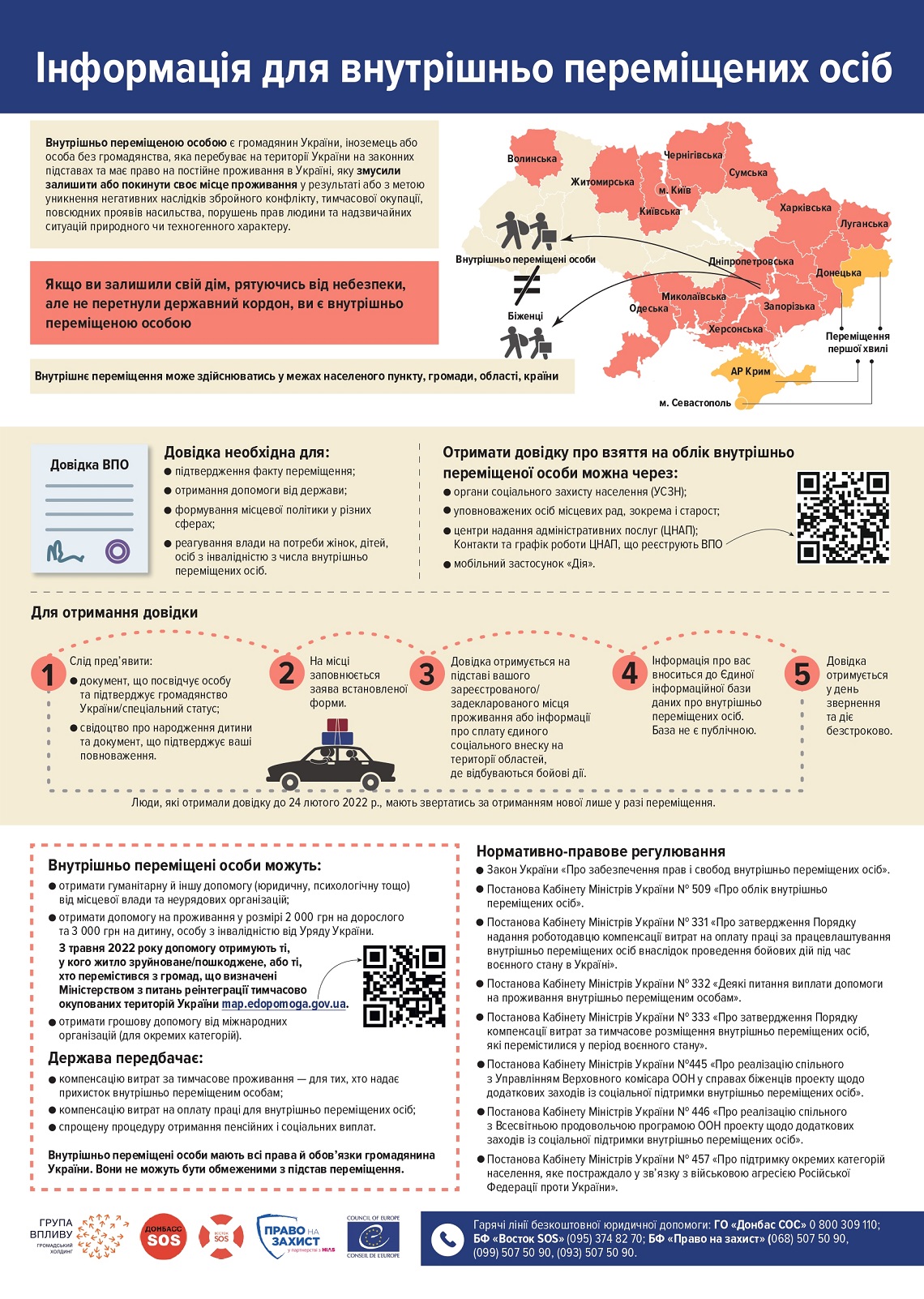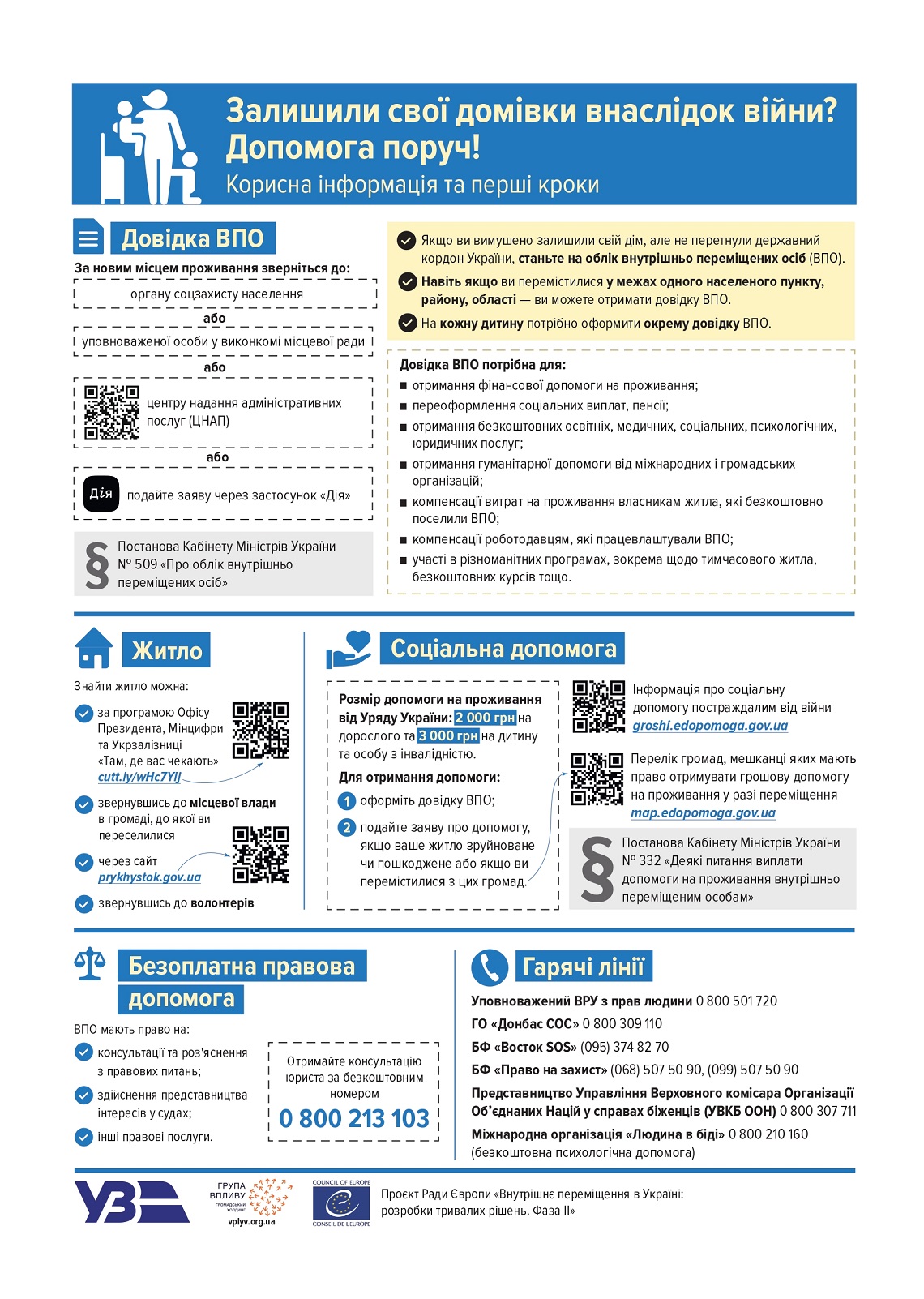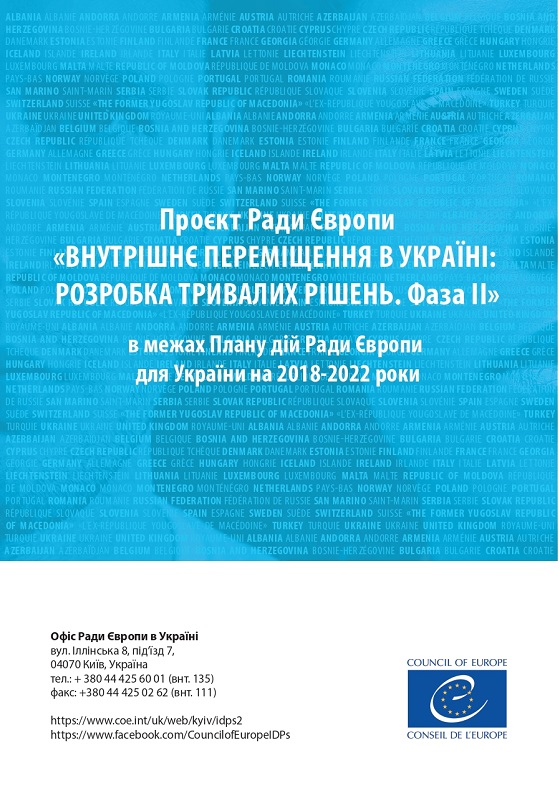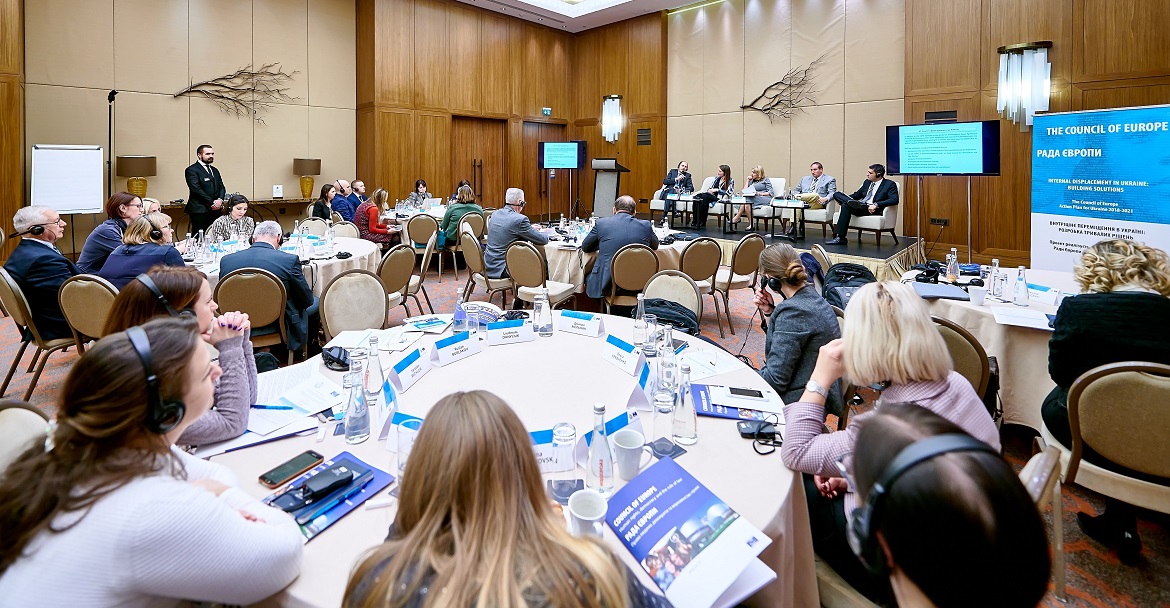On 3 December 2018, international conference “Human Rights Protection in Situation of Forced Displacement: European Standards and Constitutional Jurisprudence” was held, organised by the Council of Europe Project ‘Internal Displacement in Ukraine: Building Solutions’ (the ‘Project’) together with the Constitutional Court of Ukraine.
The conference was attended by the judges and the Secretariat staff of the Constitutional Court of Ukraine, by the Balkan countries’ constitutional court judges and government officials, representatives of the Council of Europe and international experts.
During the event, the handbook ‘Protecting Internally Displaced Persons under the European Convention on Human Rights and Other Council of Europe Standards’, prepared under the Project, was presented by its author, Costas Paraskeva. The attendees also discussed well-established case law of the Court on forced displacement related matters, ECtHR judgments and decisions concerning Ukraine, the Parliamentary Assembly of the Council of Europe resolutions on human rights protection and humanitarian consequences of armed conflict in Ukraine, national jurisdiction and extraterritorial application of international human rights treaties, positive obligations of the State in the situation of conflict and internal displacement, and relevant constitutional jurisdiction experience in the Balkan countries.
In his speech, Stanislav Shevchuk, President of the Constitutional Court of Ukraine, drew the audience’s attention to the fact that the Constitutional Court of Ukraine has formulated the ‘friendly attitude’ principle towards international law. According to him, the fundamental rights and freedoms enshrined in the Convention for the Protection of Human Rights and Fundamental Freedoms and the Constitution of Ukraine have a common legal nature. The President of the Constitutional Court of Ukraine pointed out that the Constitution has the supreme legal force, although any issues should be addressed pursuant to international human rights treaties and the case law of the European Court for Human Rights.
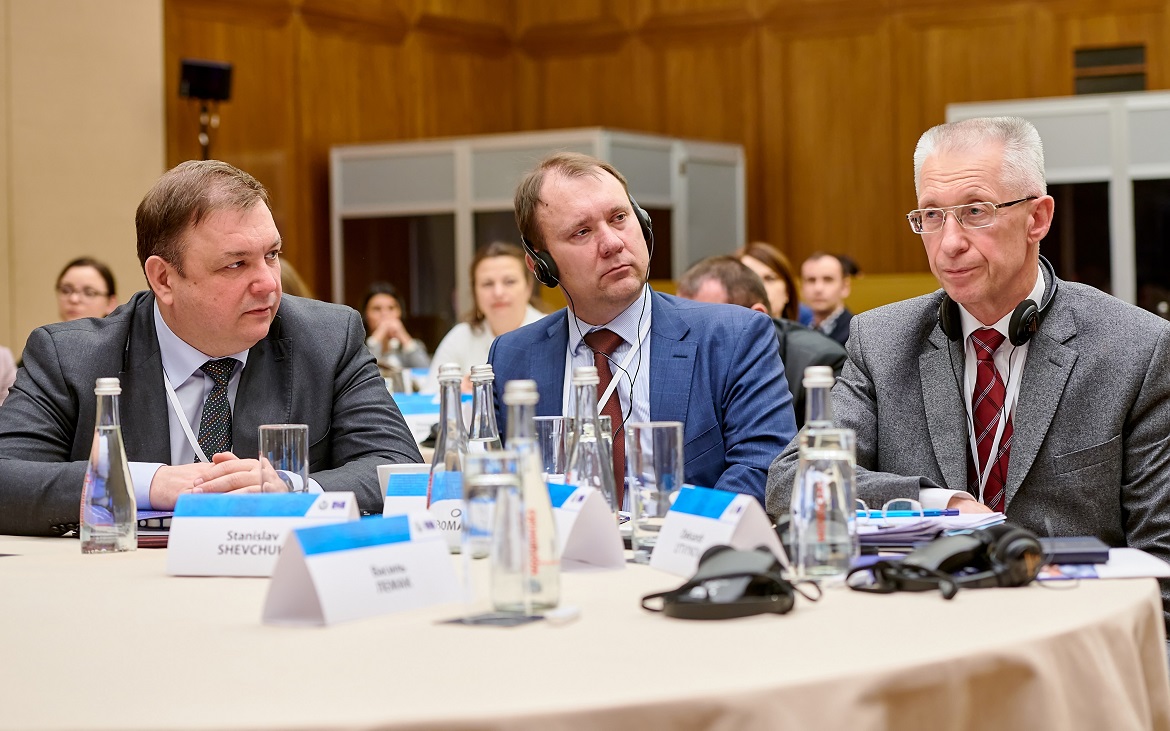
Lilja Gretarsdottir, Deputy Head of Division, Independent Human Rights Bodies, Council of Europe Directorate General on Human Rights and Rule of Law (Strasbourg), and Olena Lytvynenko, Deputy Head of the Council of Europe Office in Ukraine (Kyiv), welcomed the attendees on behalf of the Council of Europe, noting in their speeches that this all-important event has combined two key aspects, i.e., constitutional jurisdiction and European values, while Ukraine’s newly instituted constitutional complaint procedure represents a significant step forward towards improved national mechanism for the IDPs’ rights and freedoms protection.
Mykhailo Hultai, Judge of the Constitutional Court of Ukraine, spoke in great detail in his report about the available models for integrating the European human rights standards into the constitutional proceedings. Mr Hultai reviewed the challenges and prospects of the IDPs’ rights protection through Ukraine’s constitutional complaint procedure, stressing that the case law of the Constitutional Court of Ukraine has demonstrated the importance of the European Convention on Human Rights while reviewing constitutionality of particular legal norms (exercising constitutional control).
Marko Milanovic, Professor of Public International Law at the University of Nottingham School of Law (UK), pointed out that the problem of applicability of the European Convention on Human Rights in contested territories is not unique to Ukraine. Among others, similar issues were faced by Georgia in respect of South Ossetia/Abkhazia, Serbia ― in respect of Kosovo, as well as by Iraq, Syria, and Colombia. Ganna Khrystova, Senior Project Officer, added that the state’s positive obligations within its effectively controlled territories call, in particular, for taking measures to protect individuals against the aftermath of hostilities, including explosive remnants of war; for ensuring, to the greatest extent possible, protection against illegal paramilitary groups; for being accountable for the fate of forcibly missing persons; and, finally, for guaranteeing the rights of IDPs.
Stanislav Shevchuk, President of the Constitutional Court of Ukraine, expressed his gratitude to the Council of Europe for its practical assistance and consistent position in support of Ukraine, as well as for the opportunity to hear the opinions of leading European experts and colleagues representing the constitutional jurisdiction of Croatia and Montenegro – the countries facing challenges similar to those of Ukraine. Lilja Gretarsdottir stressed that the Council of Europe is ready to provide its further support for Ukraine in addressing problematic issues in the field of protection of IDPs’ human rights, including shared experience between the constitutional courts in the countries facing the forced displacement.
You may read this news in Ukrainian on the Constitutional Court of Ukraine website
Sudovo-yurydychna Gazeta in Ukrainian (Judicial and Legal Newspaper)
Yurydychna Gazeta in Ukrainian (Legal Newspaper)



